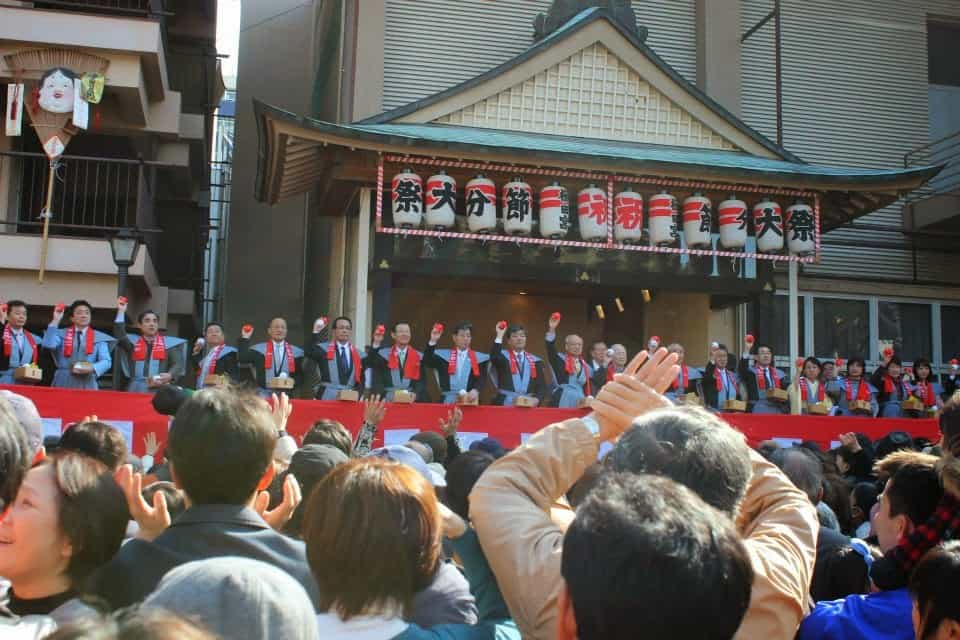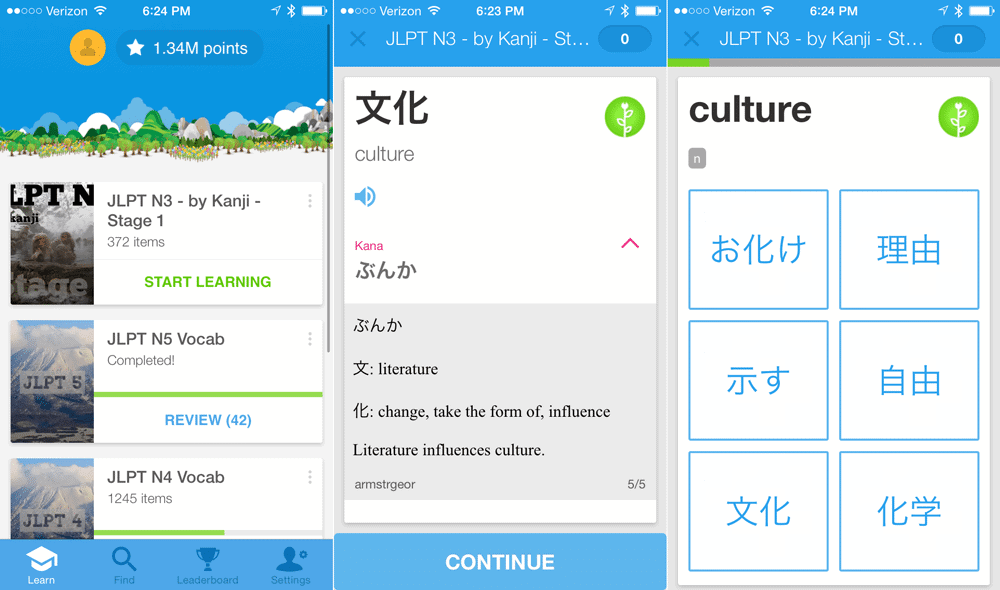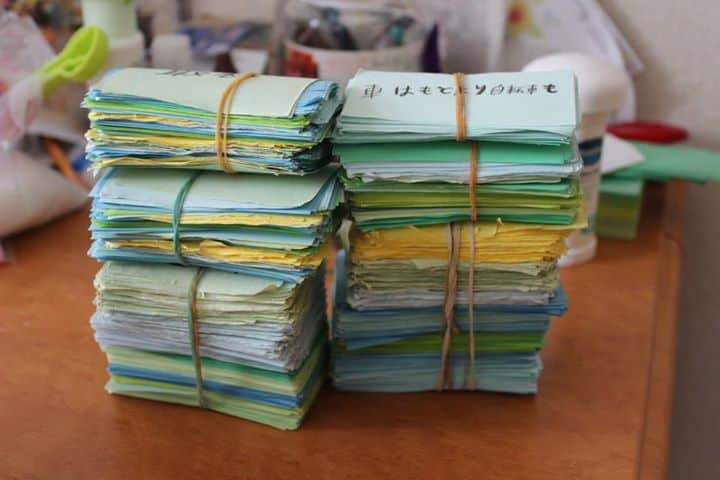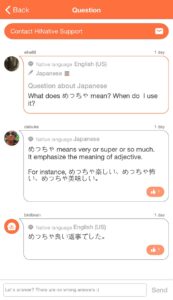How to Fit Japanese Study Into Your Busy Life

Whether you live in Japan or not, finding the time to study Japanese can be hard; especially when you have a full time job, and even more so with a family!
In a day filled with work, food, family and sleep you might only have about 2 hours free. And you probably want to spend that time relaxing!
So how do you fit Japanese study into your busy life when you are always busy?
What Is Getting In Your Way?
I think it’s important to first work out what is getting in your way of studying. Why didn’t you study today when you said you would? Why didn’t you go to that class that you booked?
List the excuses you tell yourself. They may be legitimate excuses but they are still excuses and I think it’s important to work out which are legitimate excuses and which ones are you getting in your way.
Once you identify the not-so-legitimate excuses/distractions you can consciously begin to remove them from your day.
1 Hour Once a Week is Not Effective
You might think 1 hour a week is good but it’s not an effective use of time.
Let’s say it takes roughly 140 hours to learn all the materials for beginners Japanese. If you only study Japanese 1 hour a week it will take you 140 weeks, which is 32 months aka 2.5 years. If you do 1 hour a day (15 minutes x 4 throughout the day) that’s only 140 days, or about 5 months!
Studying 1 hour a week will not only mean it takes longer to learn, but anything you learn in that hour will get forgotten within a few days and you’ll have to re-learn it the next week, meaning it could take even longer!
15 minutes a few times a day (or even once a day) is a lot more effective than 1 hour a week as you’re exposing yourself frequently enough for it to stick.
Find Those 10 Minutes in a Day
We often have pockets of time around 5-20 minutes long in a day when we’re waiting for something: an email, the kettle to boil, dinner to cook, kids to get out of school, etc.
When you find yourself in those times that’s a good time to study.
First of all, as I mentioned, short bursts throughout the day can be a lot more effective than 1 hour every few days or every week!
You might think that you need to sit down at a desk for an hour a day, but that’s really not true. When we focus on one thing for too long our brains subconsciously begin to get distracted. So short bursts every day can be more effective.
You may also think “I’ll do it when I have more time” or “I’ll do it at the weekend”. But if you keep putting it off then you’ll never get it done. If you find yourself thinking “I’ll do it tomorrow” or “I’ll spend 5 minutes on Facebook first”, then that’s the time to work!
So what should you do in those 5-20 minutes you have free?
Take Advantage of Apps

Modern technology is an amazing thing and there are many apps for teaching you Japanese. These are what you want to use when you have those pockets of free time.
Our default is often to open Facebook or Twitter or LinkedIn or your email. But if you’re serious about studying Japanese then you need to stop yourself from wasting that time and use it for something more productive.
Some of the best apps are those that have spaced repetition programming. This means things you’ve studied will come up again and again to help you learn. Apps that have spaced repetition include Memrise and Anki.
I think it’s best to research and find the best App(s) that work for you.
Label Your House/Office

Another great way to study when you don’t have time is to label your house.
As a beginner this means writing down the Japanese words for household objects and sticking them to the corresponding object. That way when you’re walking around you’ll see the word for “bookshelf” every time you look at the shelf.
Another thing you could do is write down vocabulary/grammar you’re learning and stick those to a wall/door/fridge so you read it every time you pass.
If you don’t have time to write these labels/flashcards at home then do it in those 10 minutes you have free at work!
Make sure you don’t just read these in your head, but say them out loud when you see them. This will help you remember.
Shower and Walk Thoughts in Japanese
Taking a shower or going for a walk are great times to try and think in Japanese.
If you’re a beginner you could try to remember vocabulary you recently learnt.
You could try and think up random sentences. Imagine you’re having a conversation with someone and try to think what you’ll say to them.
Similar to the label idea, I find it helps to point at random things and try to remember their Japanese name.
Again, try and talk out loud to help you remember.
Ask Others and Talk With Natives

Don’t have the time to study with a Japanese teacher once a week? Other people online can help you learn fast!
You can post questions about Japanese on apps like italki and HiNative. Natives and Japanese learners will often post replies fairly quickly.
You can also practice Japanese by making friends with Japanese people through apps.
One such app is LINE. Every Japanese person has LINE. It’s basically the WhatsApp for Japan and Japanese people will often use LINE more than Facebook.
HelloTalk is similar to HiNative, but it’s more focused on communication than asking questions.
Of course italki is also a great place to meet people and exchange LINE and/or skype information.
How to fit Japanese Study Into Your Busy Life
I admit it’s not going to be easy and a lot of self-discipline is involved. But it is possible to find those 5-20 minutes a few times a day and study.
The above advice can easily be done a few times in a day. A mixture of different learning methods also keeps things interesting and fun.
“Traditional” study methods (i.e textbooks, teachers etc.) are a good way to supplement your learning and give it a boost. But I don’t think it’s the only way to learn, and with modern technology it’s so easy to study on the go!
What apps do you like for learning/practicing Japanese? What methods do you use when you’re busy?
By Jennifer O’Donnell a British English/Japanese Translator who among other things runs the Japanese Talk Online Blog and has created some pretty useful Japanese Language and Cultural ‘Memrise.com’ training courses. As well as on LinkedIn, in the BIJ Group and at her Blog, you can find Jennifer on her JTalkOnlineBlog Facebook Page!
